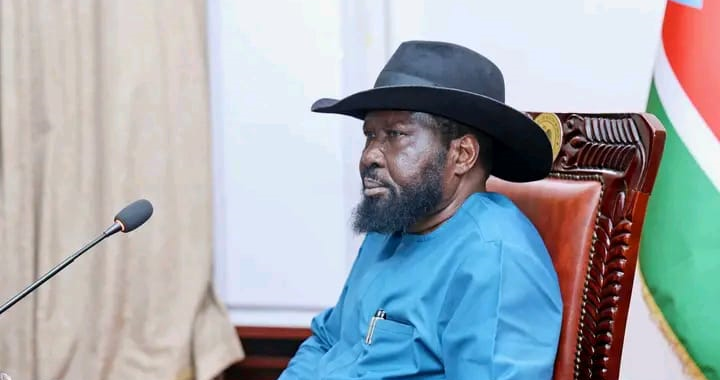South Sudan’s President Salva Kiir Mayardit signed an official document on Wednesday about creating a new delegation for peace talks with the holdout opposition groups in Kenya.
Multiple government officials who preferred anonymity confirmed to Radio Tamazuj that the document was signed “to form a new delegation of the government to negotiate with the holdout group to sign a peace agreement.”
Gen. Kuol Manyang Juuk, the senior presidential advisor who also deputizes Kiir in the ruling party SPLM, has been appointed head of the government delegation.
“President Kiir has appointed a 15-member negotiating team to travel to Nairobi to negotiate with the holdout group. The new delegation is headed by Gen. Kuol Manyang,” one of the sources confirmed.
According to the sources, Puot Kang Chuol, a senior member of the opposition SPLM-IO and minister of petroleum, has been appointed deputy head of the government delegation.
Dr. Martin Alia Lomuro, a close ally of the president and minister for cabinet affairs, has been appointed the new rapporteur of the government delegation, replacing Information Minister Michael Makuei.
It remains unclear why Minister Makuei has been replaced.
The delegation also includes veteran politician Dr Lam Akol Ajawin, Rebecca Joshua Okwachi, Ambassador Beatrice Khamisa Wani, mining minister Martin Abucha, and energy minister Peter Marcello.
“There are new members and old faces in the government delegation. Actually the government team comprises of 15 members. The names of the new delegation have already been submitted to Kenya’s President William Ruto so that the talks can resume in Nairobi,” another source said.
Separately, Kenya’s President William Ruto announced Wednesday evening that he received a message from President Salva Kiir through Special Envoy and Minister for Presidential Affairs Chol Ajongo.
“Received a special message from President Salva Kiir Mayardit of South Sudan through Special Envoy and Minister for Presidential Affairs Chol Ajongo, State House, Nairobi,” President Ruto said in a post on X.
He pointed out that the search for lasting peace in South Sudan is of paramount importance to its citizens and the East African region.
“The Tumaini Initiative, which brings together government and opposition parties, continues to offer leadership for this noble task”, he concluded.
The resumption of the Tumaini (hope) Initiative talks on the South Sudan crisis was marred by confusion on Monday after the government side failed to turn up at the Nairobi venue.
Last Friday, Kenyan Chief Mediator Gen (rtd) Lazaro Sumbeiywo extended invitations to the government and the opposition, aimed at resolving the conflicts. That came after Kenyan President William Ruto’s visit to Juba, where he held talks with his South Sudan counterpart Salva Kiir, First Vice-President Riek Machar and other key stakeholders in the Revitalized Transitional Government of National Unity (R-TGoNU) to resume negotiations in Nairobi to address the outstanding issues.
A few hours after President Ruto’s visit to Juba, Kiir fired the Presidential Special Envoy and Head of the Government Delegation to the Tumaini Initiative, Albino Mathom.
The talks are part of the peace process, launched in May 2024, aiming to mediate conflicts involving the holdout opposition groups that have yet to endorse the 2018 Revitalized Agreement on the Resolution of Conflict in South Sudan (R-ARCSS).
The Kenya-led peace talks encountered a setback in July, when some government representatives raised concerns over some proposed mechanisms.
The Tumaini Initiative brings together major holdout groups, including the Real Sudan People’s Liberation Movement of Pagan Amum; the South Sudan United Front, led by former SSPDF Chief of Staff Paul Malong Awan; and the South Sudan People’s Movement/Army (SSPM/A), under Gen Stephen Buoy Rolnyang.
Major international donors in South Sudan, including the European Union and the Troika group of nations, have voiced support for the Tumaini Initiative.




